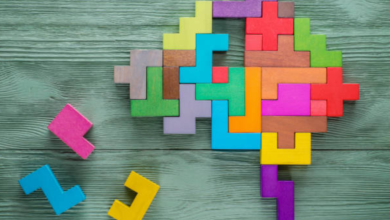Nutritional Foundations for Optimal Brain Performance

Your brain is the command center of your body, controlling everything from conscious thought to unconscious processes like breathing and digestion. Despite weighing just about three pounds—roughly 2% of your total body weight—it consumes a disproportionate 20% of your daily energy intake. This remarkable organ requires specific nutrients to function at its peak, making the connection between diet and cognitive performance undeniable.
The pathway to a sharp mind begins with understanding that what you eat directly influences your brain’s operation. Research consistently demonstrates that specific dietary patterns can enhance memory, concentration, mood, and overall cognitive resilience. The foods you consume provide the raw materials your brain needs to produce neurotransmitters, maintain cellular integrity, and protect against oxidative damage—all essential for optimal mental performance.
The Brain-Gut Connection
The relationship between your digestive system and brain function represents one of the most exciting frontiers in neuroscience. This bidirectional communication network, known as the gut-brain axis, involves complex interactions between your enteric and central nervous systems. The foods you eat influence the composition of your gut microbiome—the trillions of bacteria residing in your intestines—affecting brain function through various biochemical pathways.
A healthy gut microbiome produces beneficial compounds like short-chain fatty acids that reduce inflammation and support brain health. Conversely, an imbalanced microbiome can increase systemic inflammation, potentially compromising cognitive function. This powerful connection explains why digestive health is a foundational element for optimal brain performance.
Essential Nutrients for Cognitive Excellence
Your brain requires specific nutrients to maintain its structure and carry out its complex functions. Here are the key nutritional players in cognitive performance:
Omega-3 Fatty Acids
These essential fats, particularly DHA (docosahexaenoic acid), constitute a significant portion of your brain’s structural material. They maintain the fluidity of neural cell membranes, facilitating communication between brain cells. Research indicates that adequate omega-3 intake correlates with better memory, slower cognitive decline with aging, and reduced risk of neurodegenerative diseases.
Primary sources include fatty fish like salmon, mackerel, and sardines and plant-based options such as flaxseeds, chia seeds, and walnuts. For many people, especially those following plant-based diets, supplementation may be necessary to achieve optimal levels.
Antioxidants
Your brain’s high metabolic activity generates significant oxidative stress—a natural byproduct of cellular energy production. Antioxidants neutralize the resulting free radicals, which can damage brain cells. Vitamins E and C, alongside plant compounds like flavonoids, carotenoids, and polyphenols, provide this crucial protection.
Colorful fruits and vegetables deliver these protective compounds, with berries, leafy greens, citrus fruits, and cruciferous vegetables offering particularly concentrated amounts. The antioxidant capacity of these foods explains why diets rich in plant foods consistently correlate with better cognitive outcomes across the lifespan.
B Vitamins
These water-soluble vitamins play essential roles in brain energy metabolism and neurotransmitter synthesis. Critical are B6, B12, and folate, which regulate homocysteine levels—an amino acid at elevated concentrations associated with cognitive decline and neurodegenerative conditions.
Whole grains, legumes, eggs, dairy, leafy greens, and animal products are sources of B vitamins. Since B12 occurs naturally only in animal foods, those following a plant-based diet should consider supplementation or fortified foods to avoid deficiency.
Hydration and Brain Function
Water constitutes approximately 75% of your brain’s mass. Even mild dehydration—as little as 1-2% loss of body water—can impair attention, working memory, and executive function. Despite this, many people chronically underhydrate, compromising their cognitive capabilities without realizing it.
The ideal hydration amount varies based on individual factors, including body size, activity level, and climate. A general guideline involves consuming enough fluids to maintain pale yellow urine throughout the day. Water remains the optimal choice for hydration, though herbal teas can also contribute to your fluid intake without the stimulating effects of caffeine.
Strategic Eating for Cognitive Performance
Beyond specific nutrients, how and when you eat significantly impacts brain function. Your brain operates optimally with a steady supply of glucose—its primary fuel source. Dramatic fluctuations in blood sugar can lead to energy crashes, mood swings, and impaired concentration.
Balancing your plate with high-quality protein, healthy fats, and complex carbohydrates helps maintain stable blood glucose levels. Protein at each meal supports neurotransmitter production, while fibrous vegetables and whole grains provide sustained energy release. Including healthy fats improves the absorption of fat-soluble vitamins and provides essential building blocks for brain cells.
Additionally, timing your meals to avoid long periods without food helps maintain cognitive performance throughout the day. Many people find that smaller, more frequent meals support steady energy levels and mental clarity compared to the traditional three-large meal pattern.
Dietary Patterns for Long-Term Brain Health
While individual nutrients matter, your overall dietary pattern strongly influences brain health. Numerous studies have demonstrated impressive benefits for cognitive function from the Mediterranean and MIND (Mediterranean-DASH Intervention for Neurodegenerative Delay) diets.
These eating patterns emphasize:
- Abundant plant foods (vegetables, fruits, legumes, whole grains)
- Regular consumption of fatty fish
- Moderate intake of poultry, eggs, and dairy
- Limited red meat consumption
- Olive oil is the primary fat source
- Minimal ultra-processed foods and added sugars
These dietary approaches support day-to-day cognitive performance and neuroprotection against age-related mental decline and dementia. The cumulative effect of these nutritional choices builds cognitive reserve—your brain’s ability to withstand damage and maintain function despite challenges.
Beyond Diet: The Complete Picture
While nutrition is a cornerstone of brain health, optimal cognitive performance requires a comprehensive approach. Quality sleep, regular physical exercise, stress management, and cognitive stimulation work synergistically with good nutrition to enhance brain function. Each of these factors influences neuroplasticity—your brain’s remarkable ability to reorganize itself by forming new neural connections.
The foods you choose provide the building blocks your brain needs to thrive, but these other lifestyle factors create the conditions that allow those nutrients to work effectively. This integrated approach recognizes that brain health emerges from the complex interplay of multiple physiological systems, all influenced by your daily habits and choices.
As our understanding of nutritional neuroscience continues to evolve, one principle remains clear: the foods you consume today shape your brain’s performance tomorrow. By prioritizing brain-supporting nutrition, you invest not only in your current cognitive capabilities but also your long-term neurological health and resilience.




